3 Pros and Cons of ChatGPT In Content Marketing
If you’ve been paying attention to content marketing trends at all in the last few weeks, you’ve probably heard of ChatGPT.
In case you haven’t heard: ChatGPT is a fascinating AI tool that can easily hold a conversation and retrieve information—but folks have started using it to help in creating written content.
And its capabilities are astounding.
Here’s a video of Hollywood star Ryan Reynolds using ChatGPT to write a script for an ad:
Pretty impressive, right?
I’ve played around in ChatGPT to get a feel for its capabilities. Plug in something like, “Write 2,000 words about content marketing,” and it’ll spit out 2,000 words about content marketing.
It’ll happen right there in front of you—line after line appears until your query is fulfilled.
With this sort of technology readily available, the possibilities are endless.
I’ve even heard people talking about how they’ll use it to write their social media posts and blogs.
And while that’s certainly possible, there’s much to think about. As great as ChatGPT sounds, it still has some serious limitations.
So, let’s talk about how AI will influence content marketing and copywriting—and where its limitations lie.
A Quick Summary On the Pros and Cons of ChatGPT
ChatGPT Benefits for Content Marketing
- Quick Research
- Great Starting Points
- New Ideas
ChatGPT Shortcomings for Content Marketing
- SEO Limitations
- Tone Limitations
- Thought Leadership Limitations
How ChatGPT Will Benefit Content Marketing
Here are a few things ChatGPT is already good at providing:
1. Quick, simplified research. Watching ChatGPT is magical. Yesterday, I even asked it to compare two obscure bands I like—and it quickly pulled a number of facts about the bands in its analysis between the two.
With that, AI can be an excellent way to cull a ton of research and information into an easy-to-read format that you can then use for larger projects.
2. Great starting points. Because the software already understands how to write complete sentences and paragraphs, it can quickly pump out a great framework for your articles.
While it’ll still need a heavy editorial hand (which we’ll talk about soon), it can provide an excellent framework for your team to work inside.
3. New ideas. ChatGPT is also a great source of new ideas. For example, you could write in, “Give me 10 ideas for blogs about content marketing,” and it’ll spit those out!
With that, ChatGPT can quickly become one of your go-to brainstorming tools for future projects and campaigns.
For more, check out our blog on 10 quick ways to come up with new blog topics!
How ChatGPT Won’t Benefit Content Marketing
Despite ChatGPT’s impressive capabilities, it still has some significant shortcomings. Those include:
1. SEO limitations. As a test, I asked ChatGPT to write a blog while focusing on a specific long-tail keyword.
It didn’t use the proper long-tail keyword. Not even once.
I then went back and adjusted my query, being clear that it was for SEO purposes.
It still didn’t do it.
So then I went back and asked it to use the exact key phrase three times.
It finally came through.
The lesson here: ChatGPT can potentially be used from an SEO perspective, but you have to understand how best to use the program to ensure you get what you’re looking for.
But of course, there are other SEO issues. The resulting article didn’t include subheaders. It didn’t include pictures and videos. And it didn’t even write a headline.
All of these violate some of the most basic recommendations in our SEO tips!
While these features may eventually arrive, their absence seriously hinders ChatGPT’s benefits from an SEO perspective. (In the meantime, check out our SEO services!)
2. Limitations in tone. If you watched the Ryan Reynolds video above, you’ll notice he asked for it to include a joke—and it does!
That’s incredibly impressive.
But there are shortcomings.
You, as a professional, have your own voice. Your brand has its own voice.
And all of your copy should match that voice.
Haphazardly using ChatGPT to write content means you’ll lose that voice, even if you try to tell ChatGPT to be silly or endearing or authoritative.
3. Limitations in thought leadership. AI won’t replace original thought leadership.
And for people who are trying to separate themselves from the competition, that’s a huge deal.
One of my favorite marketers is one of my favorites because he’s able to see innovations like ChatGPT in the bigger picture, then condense his thoughts into a clear, concise analysis.
He is a reliable source of wisdom, and I find his insights incredibly valuable.
But the thing that separates him from every other would-be influencer is his originality. He’s taking the time to share real thoughts and ideas, and that perspective is valued by thousands of marketers like myself.
You’ll have a hard time squeezing originality out of ChatGPT, especially if you’re someone who likes leaning on personal experience and storytelling in your writing!
If you’re having trouble writing your own thought leadership, check out our copywriting mastermind!
ChatGPT and Content Strategy
Bottom line: ChatGPT is simply another tool in your writing toolbox.
If you’re thinking about using ChatGPT to assist in your content marketing, talk to a content strategist beforehand to ensure you generate the best results possible—so you can unlock the advantages of content marketing.
Contact me to learn more! Email: patrick@poeticamarketing.com
